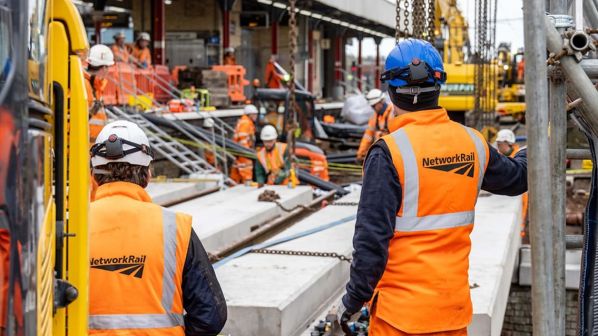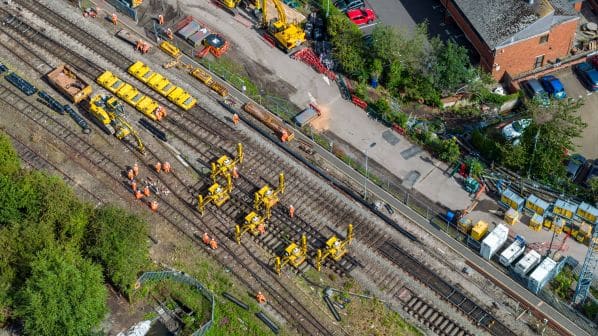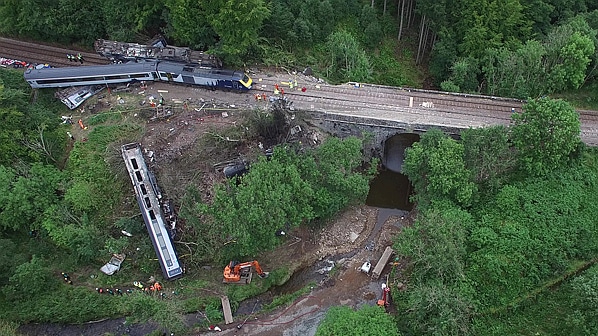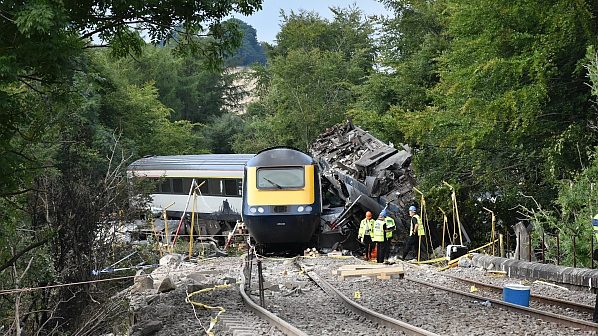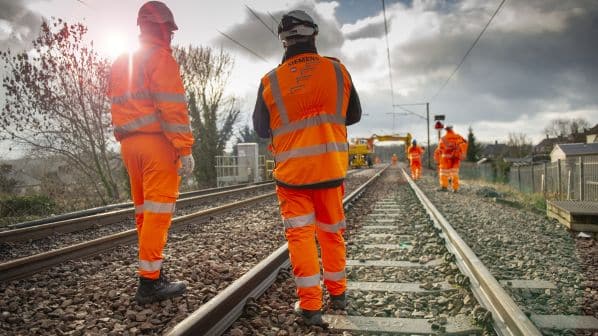NETWORK Rail (NR) commenced its latest five-year spending round, Control Period 7 (CP7), on April 1, with the British infrastructure manager pledging to deliver a simpler, better, greener railway that provides the best train performance possible and that is more prepared than ever to cope with the extremes of climate change.
NR will spend a total of £45.4bn over the five years to March 31 2029 on infrastructure in England, Wales and Scotland. This is divided into £19.3bn for infrastructure renewals, including upgraded signalling; £12.6bn on maintenance, a 6% increase on CP6; £5.3bn on support functions, including safety and standards, timetabling, IT and human resources; £4.4bn on operations; and a £1.8bn risk fund for significant unforeseen events.
Spending in CP7 is funded through grants from the English, Scottish and Welsh governments totalling £29.8bn, with £13.8bn from track access charges, and £1.7bn from NR’s commercial income. The total spend of £45.4bn is calculated in cash prices. In real terms it is £42.8bn, which is slightly less than the £43bn spent in CP6.
NR is aiming to reduce infrastructure failures by replacing or performing heavy maintenance on more than 5000km of track and more than 3000 sets of points as well as “heavy investment” in new signalling.
Climate change
NR adds that it will spend £2.8bn specifically on activities and technology that will better help it cope with extreme weather and climate change. This will include building or rebuilding more than 600km of drains, improvements at more than 20,000 cuttings and embankments, including renewal and refurbishment of sections totalling 480km and the planned maintenance of a further 1440km. NR will recruit nearly 400 additional drainage engineers to support this work.
In addition, NR will install more smart movement sensors at cuttings and embankments to improve response to potential landslips. It will install CCTV at high-risk flooding sites and invest in the Gusto system to better predict windspeeds to enable trains to run at higher speeds during stormy weather. It will also invest in real-time rainfall forecasting technology, predicting weather conditions on every 500m of line.
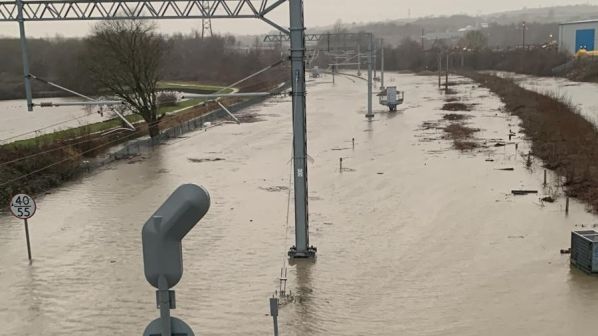
“Climate change is the biggest challenge our railway faces,” says NR chief executive, Mr Andrew Haines. “The extreme weather of the past year, that has seen an unprecedented 14 named storms, has taken its toll on our railway with experts predicting more of the same to come. We are responding to that challenge with huge investment in making our railway more resilient and better performing for rail users during such events.”
Haines adds that improving day-to-day train performance is the other major focus for NR in CP7. Work will focus on harnessing new technology to reduce the impact of external factors, such as weather impact, fatalities, trespass and vandalism. There will also be a significant focus on improving workforce capability through training and the deployment of new technology to improve decision-making and cross-industry working. Timetables will also be improved to remove bottlenecks, conflicts, and unrealistic timings.
“Our role is to deliver a safe railway that people can rely on, whatever the weather, with trains that turn up and arrive at their destination on time, and where passengers have confidence they are in safe hands,” Haines says. “This is what we must deliver daily and what we should, and will, be held to account for.”
CP6
NR spent a total of £18.7bn on renewals during CP6, which ended on March 31, including £16.8bn on renewing core assets. It also spent £11.6bn on infrastructure enhancements. The infrastructure manager replaced 3271km of track and refurbished another 2029km over the five years when nearly 40 million trains used its infrastructure.
NR also made efficiency savings totalling £4bn, £500m ahead of the target set by its regulator, the Office of Rail and Road (ORR), and which Haines says will position NR to deliver “far, far more for our money” during CP7.
